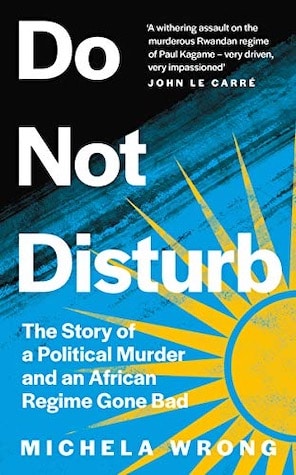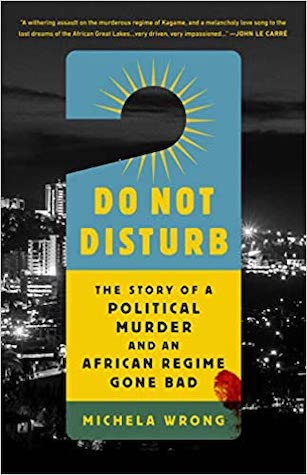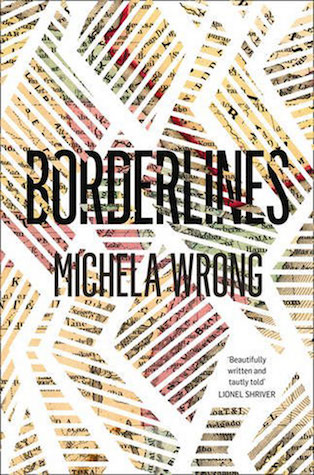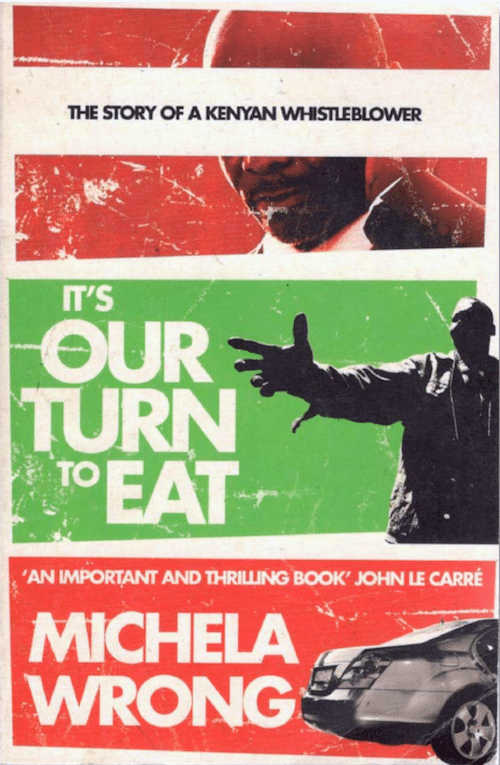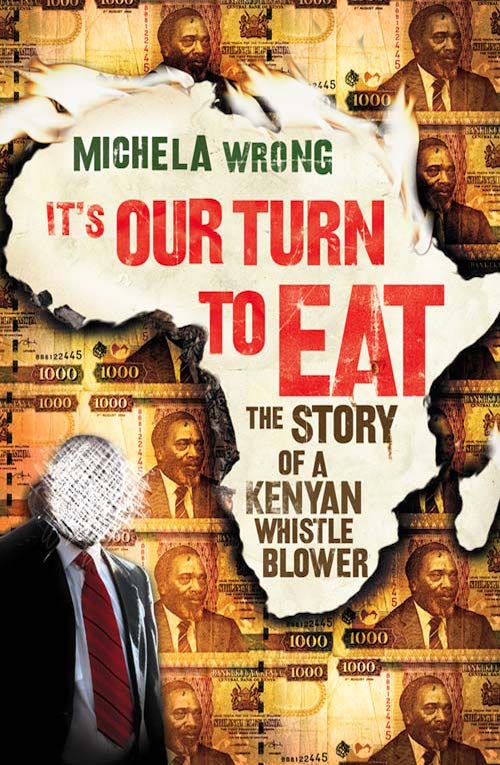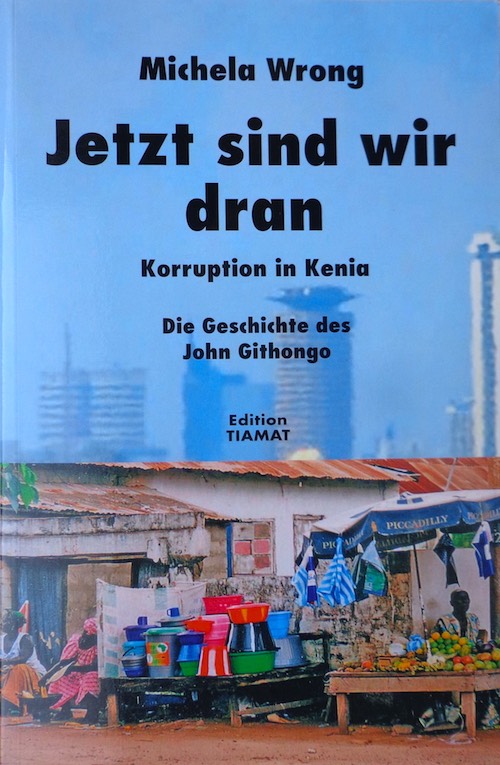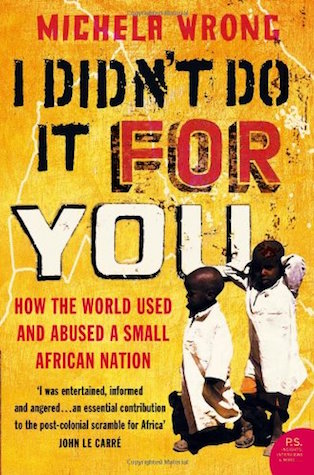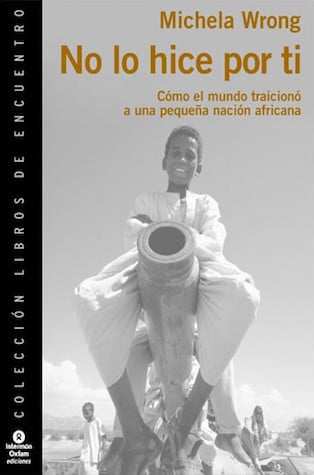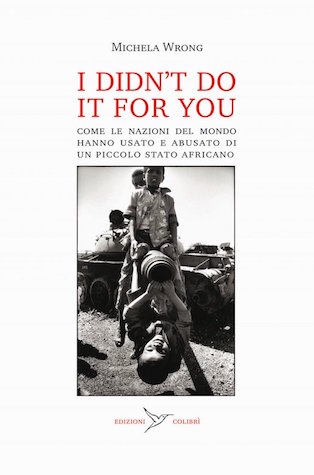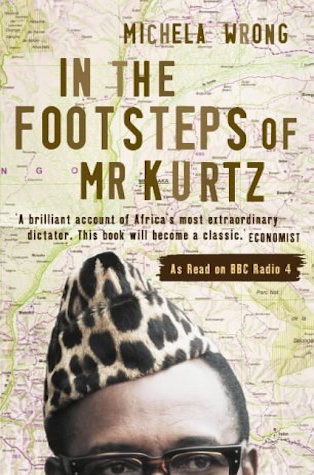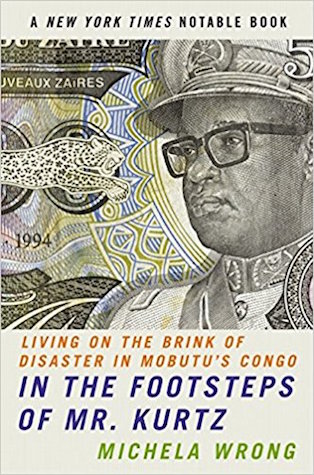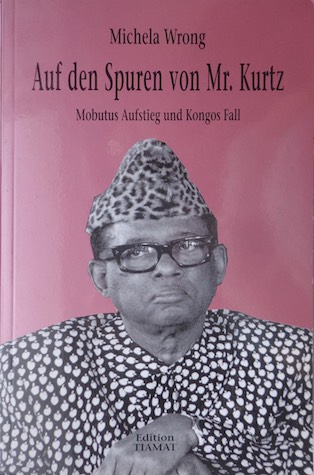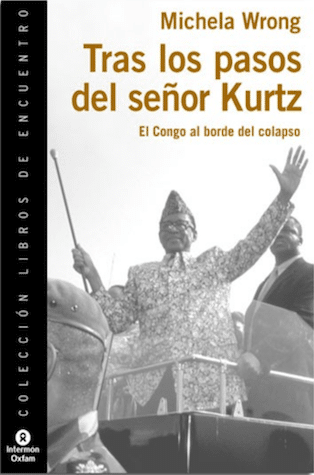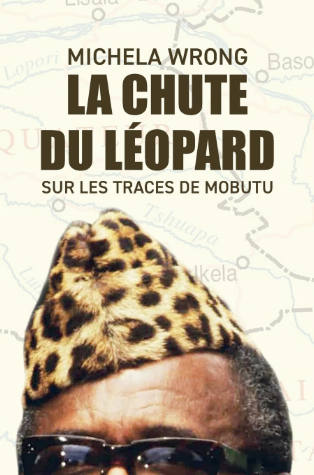Books
Do Not Disturb
The Story of a Political Murder and an African Regime Gone Bad
Synopsis
Do Not Disturb is a dramatic recasting of the modern history of Africa’s Great Lakes region, an area blighted by the greatest genocide of the twentieth century. This bold retelling, vividly sourced by direct testimony from key participants, tears up the traditional script.
In the old version, an idealistic group of young rebels overthrows a genocidal regime in Kigali, ushering in an era of peace and stability that makes Rwanda the donor darling of the West, winning comparisons with Switzerland and Singapore. The new version examines afresh questions which dog the recent past: Why do so many ex-rebels scoff at official explanations of who fired the missile that killed the presidents of Rwanda and Burundi? Why didn’t the mass killings end when the rebels took control? Why did those same rebels, victory secured, turn so ruthlessly on one another?
Michela Wrong uses the story of Patrick Karegeya, once Rwanda’s head of external intelligence and a quicksilver operator of supple charm, to paint the portrait of a modern African dictatorship created in the chilling likeness of Paul Kagame, the president who sanctioned his former friend’s murder.
Buy Online
- Amazon: UK – US – DE – ES – FR – CA
- Books-a-Million
- Dymocks (Australia & New Zealand)
- Powells
- Waterstones (UK)
- Kindle Edition
Reviews
Archbishop Desmond Tutu, winner of the Nobel Peace Prize:
”The whole world wanted to believe in the miracle that was Rwanda – a country built from the wreckage and devastation that intertribal violence and ethnic cleansing had caused. The whole world ignored the few voices pointing out the silencing of political opponents through imprisonment, kidnapping or torture. To our shame,
our need for Rwanda to succeed far exceeded our desire or ability to see the cost at which that success was bought. In this extremely important and profoundly disturbing book, Michela Wrong sets out all the miss-steps that were ignored, all the flagrant human rights abuses that were overlooked and all the criminality for which excuses were found, until the new horrors that have been visited upon that country were perpetrated. Ms Wrong is not suggesting we become Afro-pessimists, but telling us that not only is the price of freedom eternal vigilance, but also that we must, in the words of Amilcar Cabral, ‘tell no lies, claim no easy victories.”
John le Carré, author of Tinker, Tailor, Soldier, Spy:
“A withering assault on the murderous Rwandan regime of Paul Kagame, and a melancholy love song to the lost dreams of the nations of the Great Lakes. Michela Wrong proves once again that she is an intrepid and highly professional researcher of the subject she knows best. Very driven, very impassioned.”
Adam Hochschild, author of King Leopold’s Ghost:
“Imagine a journalist of the 1930s brave enough to investigate one of the mysterious assassinations of Stalin’s opponents who had fled abroad—and to tell that story to a world where too many people were enamored of the Soviet leader. Michela Wrong has taken on a similar job today: to use a killing to expose a man today seldom recognized as a ruthless dictator. Her skills as a writer and expert knowledge of Africa make this a chilling story.”
Rene Lemarchand, author of Rwanda and Burundi:
“The author raises the curtain on a dystopian landscape too long ignored and left ‘undisturbed’ by too many observers. Through countless interviews with key actors, including the central figure in her narrative, Patrick Karegeya, the author paints a frightening picture of Rwanda as a police state with all the hallmarks of the Stalinist era, where opponents to the regime are not disappeared because they are guilty but whose disappearance is sufficient proof of their culpability. Refreshingly free of jargon, the book breaks important new ground in the literature on Rwanda, in lively and suspenseful prose. This is revisionist history at its best. I cannot recommend it too highly.”
Miles Tendi, author of The Army and Politics in Zimbabwe: Mujuru, the Liberation Fighter and Kingmaker:
”Michela Wrong takes her readers on an absorbing political journey, in which Rwandan comrades-in-arms Paul Kagame and Patrick Karegeya steadily mutate into lethal adversaries upon achieving power. The story has echoes of historic mortal political fallouts – Stalin and Trotsky, Sankara and Compaore, Robespierre and Danton, Mugabe and Mujuru – but more importantly, it draws our attention to the significant structural problems created by ex-military leaders’ participation in the building of post-war democracy and peace.”
Filip Reyntjens, author of Political Governance in Post-Genocide Rwanda:
“A unique insight into many hitherto little-known dark sides of a profoundly criminal regime. Based on first hand observations and numerous interviews with key players, victims and witnesses, this book is an indictment of those complicit in ensuring President Kagame’s impunity during the last quarter century.”
Jason Stearns author of Dancing in the Glory of Monsters: The Collapse of the Congo and the Great War of Africa:
”An intimate, clear-eyed chronicle of the violence and intrigue at the heart of Rwandan Patriotic Front’s history. This is perilous terrain; Wrong skillfully navigates amid myths and disinformation to splice together the stories of the men who came to rule Rwanda.”
Noel Twagiramungu, Director of the Leadership & Governance Policy Lab, Africa Center for Strategic Progress:
“In rich, searing prose, backed up by damning evidence and compelling anecdote, Michela Wrong exposes the sinister paradoxes of Kagame’s murderous “donor darling” regime. Her book lays out a roadmap for another collective ‘never again’ outcry yet to come.
Focussing on the happy beginning and tragic end of Patrick Karegeya — a spymaster strangled in a South African hotel room by a Mossad-like squad of operatives he helped establish — Do not Disturb is an insightful, scrupulous, stirring yet nuanced account of a reign of terror that set Rwanda and the whole African Great Lakes on fire, using four weapons of mass destruction: the cord, the hoe, the gun, the missile. Like Saturn, the regime is now devouring its children. This masterly investigative book should be widely read.”
Philippe Sands, author of The Ratline. Love, Lies and Justice on the Trail of a Nazi Fugitive:
“Extraordinary and utterly gripping, an excoriating work of immense courage and commitment, one that will surely make waves.”
Review on The Guardian online
“Review in The Guardian“
– 22nd August, 2015
Review in The Spectator
“Mario Reading reviews four first-rate first novels“
– 29th August, 2015
Review in the Financial Times
“The politics of cartography lies at the heart of a legal thriller set in postcolonial Africa“
– 11th September, 2015
Review on Erivision.org
“Borderlines by Michela Wrong – Book Review by Dawit Mesfin“
– 17th September, 2015
Review on Theeastafrican.co.ke
“Review in The East African“
– 17th September, 2015
Review on Africasacountry.com
“Borderlines: The tale of a state in limbo“
– 24th September, 2015
Review on Africanarguments.org
“Review: Borderlines by Michela Wrong“
– 14th October, 2015
Review on www.nation.co.ke
“Review in Kenya’s Daily Nation“
– 6th November, 2015
Liz Blunt’s review in the Anglo-Ethiopian Society News File
“Anglo-Ethiopian Society News File“
– Winter, 2015
Review on Timeslive.co.za: South Africa’s “Times”
“New Territories: Story of an African fracas“
– 14th April, 2016
Review in The Times Literary Supplement
“Out of Africa” by Laura Jones
– 12th October, 2016
Review in France’s Marianne Magazine
(en Francais)
“Rwanda: l’histoire écrite par le FPR, c’est fini!”
– 6th April, 2023
Interview from Morgenbladet
“Jeg kan ikke tenke meg et mer upassende land å sende asylsøkere til”
– 20th May, 2022
Review from Weltwoche.ch
“Die Wahrheit über Ruanda”
– 25th January, 2022
Review from Spiked-online.com
“Rwanda: a dictatorship loved by the West”
– 20th September, 2021
Review from ESglobal.org
“Ruanda te vigila”
– 6th September, 2021
Review from Zam Magazine
“Book Review | Rwanda’s Assassins Without Borders”
– 23rd August, 2021
Review from Washington Post
“Michela Wrong’s new book explores the 2013 murder of an exiled Rwandan official”
– 13th August, 2021
Review from DailyMaverick.co.za
“Book Review: Do not disturb the narrative that is the Rwandan economic lion”
– 20th June, 2021
Review from The Tablet
“There is a darkness gathering: Paul Kagame is the most ruthless politician operating in Africa today”
– 19th June, 2021
Review from Lowyinstitute.org
“An unwelcome wake up call: A story of spies and deception and the deadly consequences of crossing a tiny nation in the heart of Africa.”
– 16th June, 2021
Review from FocusOnAfrica.info
““Non disturbare”. La storia di un omicidio politico e di un regime africano diventato cattivo, intervista con l’autrice”
– 3rd June, 2021
Review from Corriere della Sera
“Basta silenzi sul regime feroce del Ruanda“
– 23rd May, 2021
Review from ForeignPolicy.com
“The Dark Side of Rwanda’s Rebirth“
– 29th May, 2021
Review from The Continent
(Mail & Guardian: Review on pages 14-16)
“Do Not Disturb: Looking beyond Rwanda’s genocide“
– 29th May, 2021
Review from TrevorGrundy.news
“A timely and courageous insight into an African despot who won the hearts and wallets of the global elite“
– 30th April, 2021
Review from AfricasACountry.com
“A disturbing story: An interview with Michela Wrong“
– 16th April, 2021
Review from The New Statesman
“Paul Kagame: the hidden dictator | How Paul Kagame’s Rwandan regime wooed the global elite.“
– 14th April, 2021
Review from The Observer
“The case against a strongman saviour“
– 11th April, 2021
Review on DailyMaverick.co.za
“Rwanda’s miraculous rebirth exposed as a mirage, shrouding a militaristic surveillance state“
– 5th April, 2021
Review on France24.com
“New book shows a very different side to Rwanda’s Paul Kagame“
– 5th April, 2021
Review on FinancialTimes.com
“Rwanda’s Paul Kagame — is he just another repressive dictator?“
– 5th April, 2021
Review on Reuters.com
“Review: Rwanda, Africa’s good-news story gone bad“
– 1st April, 2021
Review on NYTimes.com
“The Dark Underside of Rwanda’s Model Public Image“
– 30th March, 2021
Review on CurrentAffairs.org
“The True Story of the Rwandan Genocide“
– 30th March, 2021
Review in The Economist
“A scathing critique of Paul Kagame’s government“
– 27th March, 2021
Review in The Spectator
“The making of a monster: Paul Kagame’s bloodstained past“
– 27th March, 2021
Review on PhilVernon.net
“Do Not Disturb – or perhaps: ‘Why We Should be Disturbed’?“
– 26th March, 2021
Review on DemocracyInAfrica.org
“Edward Clay Reviews Michela Wrong’s Do Not Disturb“
– 22th March, 2021
Review in The Times
“Do Not Disturb by Michela Wrong review — the making of a monster”
(Download as a PDF)
– 20th March, 2021
Review on The Guardian
“‘We choose good guys and bad guys’: beneath the myth of ‘model’ Rwanda“
– 19th March, 2021
Review on AfricanArguments.org
“Rwanda is eating its own (aka why you should read Do Not Disturb)“
– 9th March, 2021
Borderlines

UK Hardcover
(Fourth Estate)
Hardcover: 13 Aug 2015
ISBN:000814740X

UK Paperback
(Fourth Estate)
Paperback: 30 June 2016
ISBN-13: 978-0008123017
Synopsis
British lawyer Paula Shackleton is mourning a lost love when a small man in a
She flies to the highland capital determined to lose herself in
In this taut legal thriller, rich with the Horn of Africa’s
Buy Online
- Amazon: UK – US – DE – ES – FR – CA
- Books-a-Million
- Dymocks (Australia & New Zealand)
- Powells
- Waterstones (UK)
- Kindle Edition
Reviews
Lindsey Hilsum, Channel Four news:
“I read Borderlines in a single sitting. Paula Shackleton is an anti-heroine for our times: clever, spiky, complex and flawed. Michela Wrong has gained a reputation as a fluid, perceptive writer of non-fiction – now she has added a twist of imagination to create a gripping novel.”
Iain Pears, author of “An Instance of the Fingerpost”:
“Borderlines is not only a compelling narrative, it is also a thoughtful investigation of the ambiguities inherent in Western engagement with Africa. Should we defend oppressive governments? Should we intervene in local disputes? Does the idea of justice have real meaning, or is it just a cover for deals between the powerful? Michela Wrong poses the questions in a stylish story, but Africa is no mere backdrop for Western angst. She brings the place and its characters to life in a novel which is as entertaining as it is thought-provoking.”
Lionel Shriver, author of “We Need to Talk About Kevin”:
“Few other writers could make a border dispute in the Hague have readers sitting on the edges of their chairs. And no other writer I know of is capable of making Africa seem just as accessibly screwed up as our own messy political back yards. “Borderlines” is beautifully written and tautly told. It helps to explain why refugees from the Horn are queuing for boats in Libya, and portrays the searing disappointment of fighting a liberation war for years only to be betrayed by your own side. That disappointment isn’t African; it’s universal.”
Review on The Guardian online
“Review in The Guardian“
– 22nd August, 2015
Review in The Spectator
“Mario Reading reviews four first-rate first novels“
– 29th August, 2015
Review in the Financial Times
“The politics of cartography lies at the heart of a legal thriller set in postcolonial Africa“
– 11th September, 2015
Review on Erivision.org
“Borderlines by Michela Wrong – Book Review by Dawit Mesfin“
– 17th September, 2015
Review on Theeastafrican.co.ke
“Review in The East African“
– 17th September, 2015
Review on Africasacountry.com
“Borderlines: The tale of a state in limbo“
– 24th September, 2015
Review on Africanarguments.org
“Review: Borderlines by Michela Wrong“
– 14th October, 2015
Review on www.nation.co.ke
“Review in Kenya’s Daily Nation“
– 6th November, 2015
Liz Blunt’s review in the Anglo-Ethiopian Society News File
“Anglo-Ethiopian Society News File“
– Winter, 2015
Review on Timeslive.co.za: South Africa’s “Times”
“New Territories: Story of an African fracas“
– 14th April, 2016
Review in The Times Literary Supplement
“Out of Africa” by Laura Jones
– 12th October, 2016
It’s Our Turn To Eat
“The Story of a Kenyan Whistleblower”

UK Edition
(Fourth Estate)
Paperback: 7 Jan 2010
ISBN: 0007241976
Hardback: 19 Feb 2009
ISBN: 0007241968

US Edition
(Harper Collins)
Paperback: 8 June 2010
ISBN: 0061346594
Hardback: 16 June 2009
ISBN: 0061346586

German Translation
“Jetzt sind wir dran”
Translated by Anna Latz
Paperback: March 2010
ISBN: 9783893201402

Spanish Translation
“Ahora comemos nosotros”
Translated by Silvia Komet
Paperback: May 2011
ISBN: 9788484524069
Order Direct
Order online: Oxfamintermon.org
Synopsis
In January 2003, Kenya was hailed as a model of democracy after the peaceful election of its new president, Mwai Kibaki. By appointing respected longtime reformer John Githongo as anticorruption czar, the new government
Under former President Moi, his Kalenjin tribesmen ate. “Now it’s our turn to eat,” politicians and civil servants close to the president told Githongo”. As a member of the government and the president’s own Kikuyu tribe, Githongo was expected to cooperate. But he refused to be bound by ethnic loyalty. Githongo had secretly compiled evidence of official malfeasance and, at great personal risk, made the painful choice to go public. The result was Kenya’s version of Watergate.
Michela Wrong’s account of how a pillar of the establishment turned whistle-blower, becoming simultaneously one of the most hated and admired men in Kenya, grips like a political thriller. At the same time, by exploring the factors that continue to blight Africa – ethnic favoritism, government corruption, and the smug complacency of Western donor nations – “It’s Our Turn to Eat” probes the very roots of the continent’s predicament. It is a story that no one concerned with our global future can afford to miss.
Buy Online
- Amazon: UK – US – DE – ES – FR – CA
- Books-a-Million
- Dymocks (Australia & New Zealand)
- Powells
- Waterstones (UK)
- Kindle Edition
Reviews
“Long before their official launch, most books detach themselves from their authors. An editor calls to say the text has gone to the printers and no further changes are possible. You feel a pang of regret, tinged with relief. Like any anxious parent, you will do what you can to ease your creation’s passage through a hostile world, granting interviews, giving the odd speech, but essentially it must now fend for itself. Your attention shifts to the next project.”
– Author’s account of the book’s post-publication turbulent saga in Standpoint magazine, July/August 2009
“A book detailing a culture of corruption in Kenya is making booksellers and government officials uneasy, but for different reasons. The fear of reprisals is keeping sellers from stocking it, while top officials named in the book are threatening to sue for libel.”
CNN report on the book’s boycotting in Kenya, April 23, 2009
“I walked into the bookstore and spotted the owner behind the counter. We made eye contact and I moved toward him. With a quick glance around, I leaned in and said, in a self-conscious half-whisper: “That book that everyone wants — do you have it?”
The man shook his head. “Ahh, no more,” he said. “Too hot, bwana, too hot.”
“A book that’s too hot for Kenya”, 25 February, 2009
Ray Bonner in The Guardian
Josh Hammer in the New York Times
Jeffrey Gettleman in the New York Times Review of Books
Kenyan writer Parselelo Kantai in the EastAfrican
“How to ruin a country”, The Economist
David Kazia in the Sunday Nation
Bernard Porter in the London Review of Books
Patrick Smith in the Financial Times
Biblical Study:
A 62-page Biblical study guide drawn up by the National Council of Churches of Kenya, to be read alongside the book can be found here.
I Didn’t Do It For You
“How the World Used and Abused a Small African Nation”

UK Edition
(Harper Perennial)
Paperback: 4 July 2005
ISBN: 0007150954
Hardback: 17 Jan 2005
ISBN: 0007150962

US Edition
(Harper Perennial)
Paperback: 13 June 2006
ISBN: 0060780932
Hardback: 14 June 2005
ISBN: 0060780924

Spanish Translation
(Intermon Oxfam. Libros de Encuentro)
Paperback: 2006
ISBN: 8484523853
Order Direct
Order online: Oxfamintermon.org

Italian Translation
Paperback: 1 Sep 2017
ISBN: 978-8897206323
Reviews
Order Direct
Order online from Colibriedizioni.it

Chinese Translation
(Yunnan University Press)
Paperback: 2011
ISBN: 978-7-5482-0296-7
Hardback: 17 Jan 2005
ISBN: 0007150962
Order Direct
Yunnan University Press:
+86-871-5033244
+86-8715031071
Synopsis
Scarred by decades of conflict and occupation, the craggy African nation of Eritrea has weathered the world’s longest-running guerrilla war. The dogged determination that secured victory against Ethiopia, its giant neighbor, is woven into the national psyche, the product of cynical foreign interventions. Fascist Italy wanted Eritrea as the springboard for a new, racially pure Roman empire; Britain sold off its industry for scrap; the United States needed a base for its state-of-the-art spy station; and the Soviet Union used it as a pawn in a proxy war.
In I Didn’t Do It for You, Michela Wrong reveals the breathtaking abuses this tiny nation has suffered and, with a sharp eye for detail and a taste for the incongruous, tells the story of colonialism itself and how international power politics can play havoc with a country’s destiny.
Buy Online
- Amazon: UK – US – DE – ES – FR – CA
- Books-a-Million
- Powells
- Waterstones (UK)
- Kindle Edition
Reviews
“Contemporary history on the grand scale. I was entertained, informed and angered. Wrong has given us another essential contribution to the post-colonial scramble for Africa.” – John le Carre
“Vivid, penetrating, wonderfully detailed. Michela Wrong has written the biography of a nation and more — she has excavated the very heart and soul of the Eritrean people and their country.” – Aminatta Forna
“If you thought Eritrea was some exotic flower you heard mentioned on a gardening programme this book will tell you something different. It tells the tale of a small group of Africans so despised and trampled by successive foreign occupations that they fought back and after 30 years of war, they became a nation. It is an astounding story packed with tales of the worst — and the best — of human behaviour.” – Richard Dowden, President of the Royal African Society
“I found it engrossing, vividly written in the style of the best thrillers, while portraying real-life dramas and characters larger than life. It brought to life all the cruelties and distortions of the cold war in Africa, as seen from a helpless victim-country, with its stories of grotesque interventions by Americans and Russians and the excesses of the African leaders. But it’s also thoroughly well-informed, and I’ve read nothing that’s told me as much about either Eritrea or Ethiopia. It should become the standard work on the region.” – Anthony Sampson
“Cry Freedom“, Clare Short in the New Statesman, 17 Jan 2005
“Rebels in Afros and hot pants“, Robert Guest in the Telegraph, Jan 2005
“Shadiness in the Sun“, The Economist, Jan 22, 2005
“The Never-Ending Struggle of a Forgotten Bit of Africa“, William Grimes in the New York Times, 26 July, 2005
“Post-colonial Tug of War“, Stephanie Giry in the New York Times, 14 August, 2005
“The Habit of War“, Jeremy Harding, London Review of Books, 20 July 2006
In The Footsteps Of Mr Kurtz
“Living on the Brink of Disaster in the Congo”

UK Edition
(Fourth Estate)
Paperback: 2 July 2001
ISBN: 1841154229
Royal Paperback: 03 Aug 2000
ISBN: 1841154210

US Edition
(Harper Perennial)
Paperback: 28 May 2002
ISBN: 0060188804
Hardback: 24 April 2001
ISBN: 0060188804

German Translation
Paperback: 1 Sep 2017
ISBN: 978-8897206323

Spanish Translation
(Yunnan University Press)
Paperback: 2011
ISBN: 978-7-5482-0296-7
Hardback: 17 Jan 2005
ISBN: 0007150962
Order online: Oxfamintermon.org

French Translation
(Max Milo Editions)
Paperback: 12 June 2024
ISBN: 231502076X
Synopsis
Known as “the Leopard,” the president of Zaire for thirty-two years, Mobutu Sese Seko, showed all the cunning of his namesake — seducing Western powers, buying up the opposition, and dominating his people with a devastating combination of brutality and charm. While the population was pauperized, he plundered the country’s copper and diamond resources, downing pink champagne in his jungle palace like some modern-day reincarnation of Joseph Conrad’s crazed station manager.
Michela Wrong, a correspondent who witnessed Mobutu’s last days, traces the rise and fall of the idealistic young journalist who became the stereotype of an African despot. Engrossing, highly readable, and as funny as it is tragic, In the Footsteps of Mr. Kurtz assesses the acts of the villains and the heroes in this fascinating story of the Democratic Republic of Congo.
Buy Online
- Amazon: UK – US – DE – ES – FR – CA
- Books-a-Million
- Indigo.ca
- Dymocks (Australia & New Zealand)
- Powells
- Waterstones (UK)
- Kindle Edition
Reviews
“This is the most gripping and illuminating book about Africa I have read for years, and it throws its light way beyond the borders of the Congo: not just to the neighbouring countries which are now competing for the spoils from the demoralised country, but to the wider problem of preventing the drift to corruption and tyranny in other parts of Africa.” – Anthony Sampson, Spectator.
“Michela Wrong… traveled widely in the country during the last years of Mobutu’s reign and was one of the few Western witnesses to his downfall. To stick it out in the capital, Kinshasa, must have demanded courage – and a strong sense of the absurd. She has written a cool, glittering, kaleidoscopic book. Her account of the fall of Kinshasa and Mobutu’s flight has something of the
“In the Footsteps of
“Michela Wrong’s (book) is not a one-dimensional, moralistic tale of a terrible dictator inflicted by the Cold War West on an innocent population – the kind of tale that apologists for Africa’s failure take comfort in.
“(A) chillingly amusing cautionary tale.”– Jonathan Yardley, Washington Post.
“Michela Wrong nimbly balances absurdity and outrage in her portrait of Mobutu Sese Seko and the wreckage he visited – with steady Western sponsorship – on the country he called Zaire. Her book is charged with pity and terror, and with the sort of sustaining
“Absorbing, witty and wrily observed…
Anthony Sampson in the Spectator, 7 Oct 2000
Alan Cowell in the New York Times, 8 Oct 2000
Ian Fisher in the New York Times, 10 June 2001
Thomas M Callaghy in Foreign Affairs, Sept / Oct 2001

